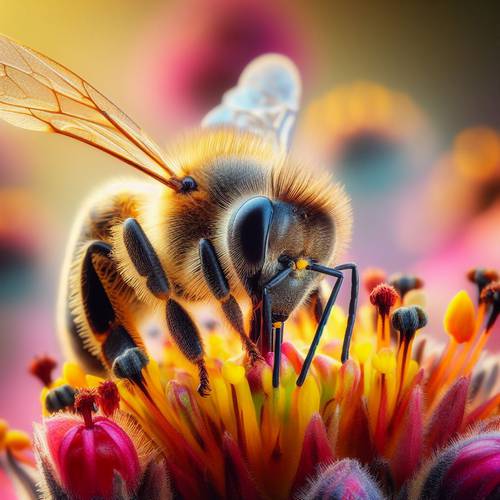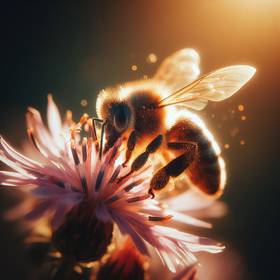The Honey-Making Process
Bees [Wikipedia source], the diligent pollinators, engage in a remarkable honey-making process. It's a collective effort involving thousands of bees in a hive. Worker bees gather nectar from flowers, which mixes with enzymes in their honey stomachs. Back at the hive, the bees pass the nectar among themselves, reducing its water content.
The bees then deposit the processed nectar into honeycomb cells, fanning it to accelerate evaporation. Once the moisture reaches a low level, voila, honey is born. This intricate process showcases nature's precision and the incredible teamwork within a bee colony.
The bees then deposit the processed nectar into honeycomb cells, fanning it to accelerate evaporation. Once the moisture reaches a low level, voila, honey is born. This intricate process showcases nature's precision and the incredible teamwork within a bee colony.
Role of Bees in Agriculture
This insect play a crucial role in agriculture, contributing significantly to the pollination of crops. About 75% of global food crops depend on pollinators like bees, enhancing yields of fruits, vegetables, and nuts. Through their foraging activities, bees facilitate the reproduction of plants, fostering biodiversity and ensuring food security.
The economic value of bee pollination is immense, with billions of dollars attributed to increased agricultural productivity. Beyond honey production, recognizing and supporting the indispensable role of bees in agriculture is vital for sustainable and resilient food systems.
The economic value of bee pollination is immense, with billions of dollars attributed to increased agricultural productivity. Beyond honey production, recognizing and supporting the indispensable role of bees in agriculture is vital for sustainable and resilient food systems.




